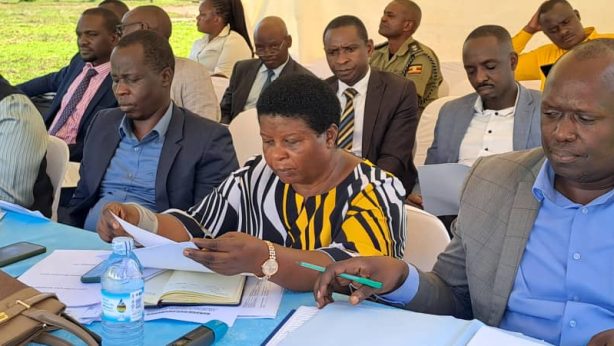Stronger data, stronger policies needed to fix Uganda’s service delivery
The Office of the Prime Minister (OPM) has urged Ministries, Departments, and Agencies (MDAs) to embrace evidence-driven policymaking that is research-based, regularly reviewed, and impact-assessed to improve the timely delivery of public services.
The call was made by Patrick Muhindo, a Senior Economist at OPM, in a keynote address during a workshop on data for decisions organized by Twaweza Uganda in partnership with Christian Fellow Ministries.
The event was held on Thursday, October 2, 2025, at Mbale Court View Hotel, bringing together local government leaders, district planners, civil society organisations, activists from Mbale, Namutumba, Manafwa, Sironko, Kumi and Kapchorwa. This event was a follow-up on prior 2024 engagements during the evidence-informed policy-making workshop that was held in Mbale.
In responding to the recommendations from 2024, Twaweza invited the Office of the Prime Minister and the Uganda Bureau of Statistics to facilitate and demonstrate linking evidence from local government to the national priorities and later on, improving access to data from the UBOS data platform.
Muhindo referred the local government (LG) officials to the Policy and Planning Department at the Ministry of Local Government as a way of addressing the challenges they face in capacity and resources, particularly during the policy drafting process. He emphasised the importance of institutional support and coordination to strengthen the ability of LG officials to develop sound and implementable policies.
He also highlighted the lack of clear policy and legal frameworks as a major barrier to implementing government directives.
Other participants echoed his concerns. Patrick Mutyaba, Vice Chairperson of Namutumba District, said unfunded priorities continue to undermine service delivery.
Activist Abbas Wetaka added that weak frameworks explain the failure of many political pledges, questioning how local governments can succeed “without resources or capacity.” He suggested allowing local governments to retain more of their own revenue.
Discussions during the workshop identified key barriers to evidence use, including limited data accessibility and capacity gaps among local officials. However, pragmatic solutions emerged. UBOS demonstrated its new data portal, which directly addressed earlier concerns about data availability. The Office of the Prime Minister and ministry representatives are committed to enhanced collaboration and capacity-building to strengthen policy formulation and evidence application at local levels.
Violet Alinda, Twaweza’s Country Team Lead, said the workshop sought to equip local officials with practical tools to integrate evidence into decision-making. Participants discussed barriers to evidence use and proposed solutions to strengthen policy outcomes.
Success stories from the previous Evidence-Informed Policy-Making training in November 2024 were shared. Catherine Nabulwala, Assistant Town Clerk of Busiu, reported improvements in grassroots interventions, while Kumi District planner Lucy Amano credited a bottom-up approach with helping the district secure ninth place in national service delivery rankings.
At the community level, Namakwekwe Primary School teacher Betty Too-paco, who was once a district inspector of schools, described how the training inspired efforts to fight absenteeism by producing reusable sanitary pads to address menstrual health challenges. This was inspired by the discussion on positive deviants, which gave her the inspiration to speak up and pursue the task of helping learners.
The workshop further presented findings from the Sauti za Wananchi factsheet, which revealed that Ugandans see unemployment and poor health services (39% each), inflation (33%), corruption (27%) and hunger (27%) as the country’s biggest challenges. At the household level, hunger and drought (40%), unemployment (39%), and poor health services (34%) emerged as the top concerns.
Judith Nansereko, a Senior Statistician with the Uganda Bureau of Statistics (UBOS), emphasised the role of data in governance. “Statistics guide policy formulation, monitoring, and evaluation,” she said, adding that digital platforms now improve access to reliable data while ensuring confidentiality. She stressed that credible statistics foster transparency and accountability, enabling citizens and civil society to evaluate government performance.
Closing the event, Mbale Resident City Commissioner Hamza Banja rallied leaders in the Bugisu sub-region to fight corruption, which he said continues to rob the public of essential services. He also urged Twaweza to incorporate climate change advocacy into its programs to help shape government policy and address climate injustices nationwide.


